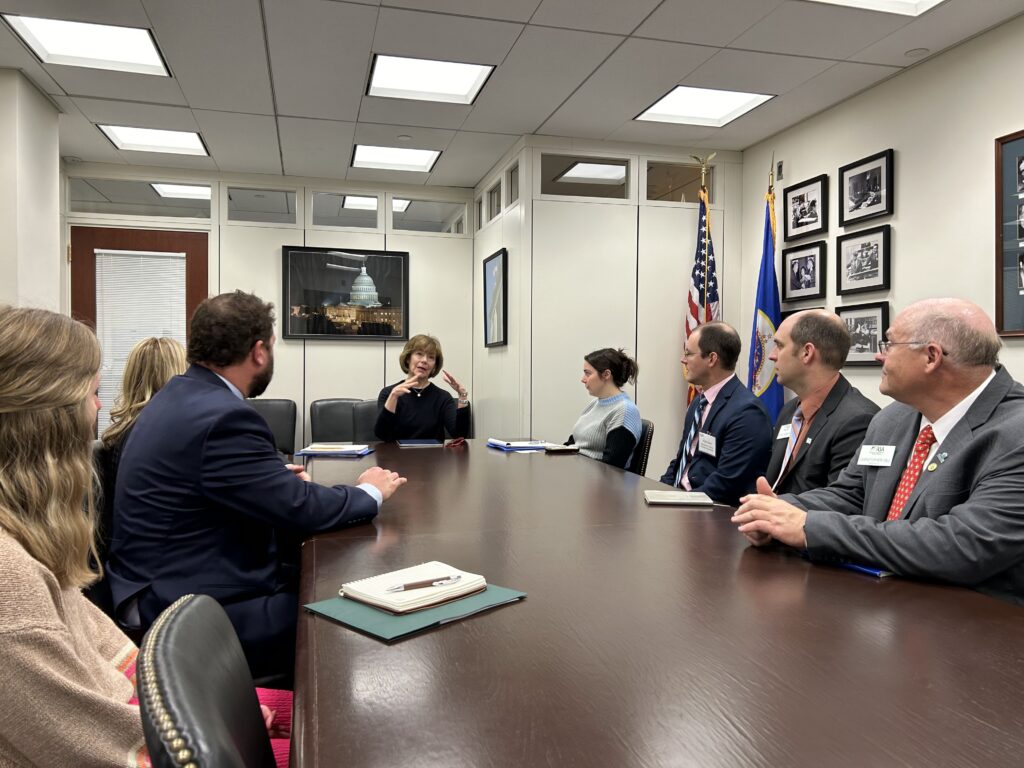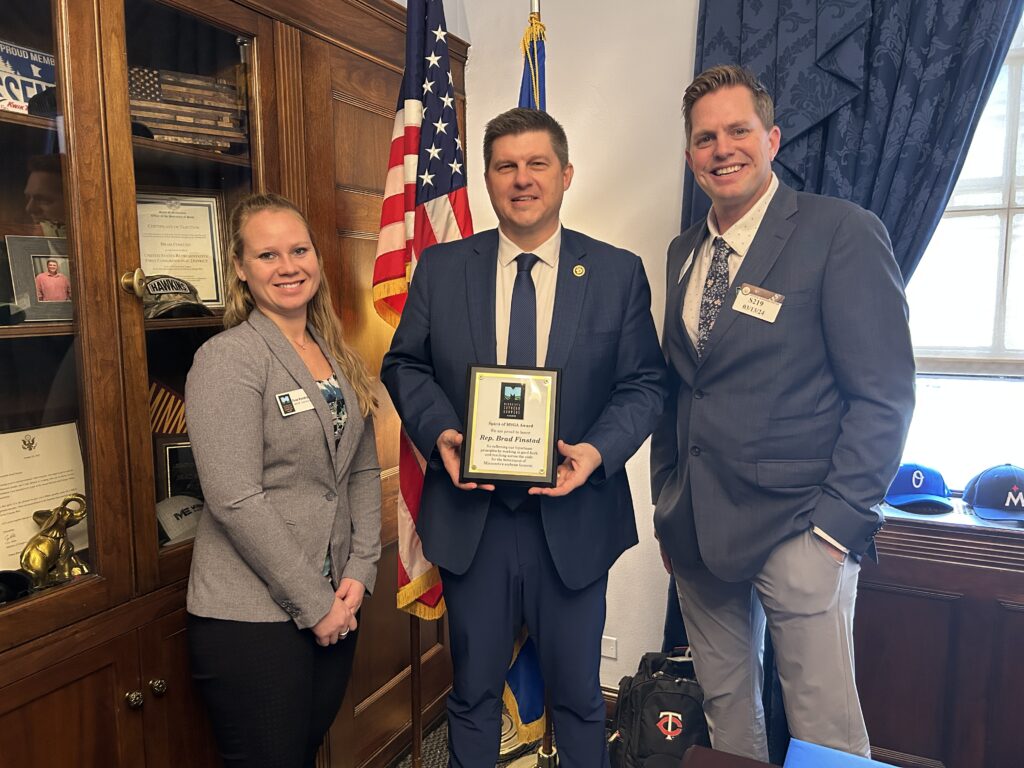MN farmers stress need for new Farm Bill during D.C. Hill Visits
MN farmers stress need for new Farm Bill during D.C. Hill Visits

While Minnesota farmers make final preparations for the 2024 planting season, a team of directors met with federal legislators in Washington, D.C., on March 14 to underscore the urgent need to pass a new Farm Bill.
“The Farm Bill truly needs to get done so we have some direction,” Darin Johnson, vice president of the Minnesota Soybean Growers Association (MSGA), said during a meeting with Sen. Amy Klobuchar and her staff. “Each side needs to come together and compromise.”
Ten directors from both MSGA and ASA gathered in the nation’s capital to attend the American Soybean Association’s (ASA) Soy Issues Forum and board meetings, and to participate in ASA’s semiannual Hill Visits.
Last November, lawmakers approved a one-year extension of the Farm Bill. With election season about to ramp up, the clock is ticking to pass a fully funded Farm Bill within months.
“We need that safety net, that security, to plant our crop,” ASA Director Adam Guetter said.
ASA’s Farm Bill priorities include:
• Improving the Title I farm safety net for soybeans to make it more responsive in times of economic disruption;
• Protecting crop insurance to assist with volatile weather and crop loss; and
• Protecting the farmer-funded, farmer-led soy checkoff that provides a high return on investment.
“The safety net doesn’t quite work as it should be right now, and we’d like to see improvements,” said Vesta farmer George Goblish, who sits on ASA’s board.

If the legislation, which will top $1 trillion, isn’t passed this year, growers are concerned a new Congress could make massive changes to the Farm Bill in 2025.
“We don’t want to start over,” Goblish said.
A strong farm safety net and ag economy also puts farmers in a stronger position to pass down their farms to the next generation. And when agriculture succeeds, rural economies prosper.
“Our local communities revolve around farming,” Guetter said. “The farm economy helps keep people in rural America, and that’s why it’s so important to pass a new Farm Bill.”

MSGA also came bearing a gift for Rep. Brad Finstad, the first-term congressman from Minnesota’s First District. Johnson presented the congressman, who farms in Brown County, with the inaugural Spirit of MSGA award, which recognizes legislators who work in good faith to support farm-friendly legislation.
“Thank you for all you do here in D.C. to be a voice for agriculture,” Johnson said.
Throughout the Hill Visit, directors also underscored the importance of China’s market to U.S. soybean producers. About 60 percent of all U.S. exports are destined for the Chinese market; in Minnesota, about one in every three rows are exported to China. In total, yearly trade relations between U.S. soybeans and China totals about $18 billion. Any disruptions with China or a repeat of the 2018-2019 trade war could cause severe harm to Minnesota farmers. ASA also is opposed to any efforts to revoke Permanent Normal Trade Relations (PNTR) status from China.
“Farmers are the ones who would get punished the most in a trade dispute,” Johnson said.
To help diversify market opportunities for U.S. soybeans, ASA supports the doubling of funding for the Market Access Program (MAP) and the Foreign Market Development (FMD) program in the new Farm Bill.
“Places like Egypt have been a great market for us, but we need to continue to build demand and find new markets so we’re not so reliant on China,” said Goblish, who also serves on the World Initiative for Soy in Human Health (WISHH) board.
Growers also explained to legislators the value of the soy checkoff. Although ASA’s advocacy helped soundly defeat a House bill last year that would’ve rolled back the checkoff program, a bipartisan, anti-checkoff bill is still lingering in the Senate.
“The checkoff helps us open new markets and address production challenges,” Wendinger told Rep. Pete Stauber’s staff. “We can’t do our research without the checkoff.”
Hill Visits don’t typically result in seismic changes in policies. But through repeated engagement and building relationships, ASA and MSGA directors are helping to move the needle. Farmers are delivering a strong, proactive message that lawmakers hear loud and clear.
“It feels like our meetings resonate with legislators and their aides,” Johnson said. “We have great support from our senators and representatives.“


